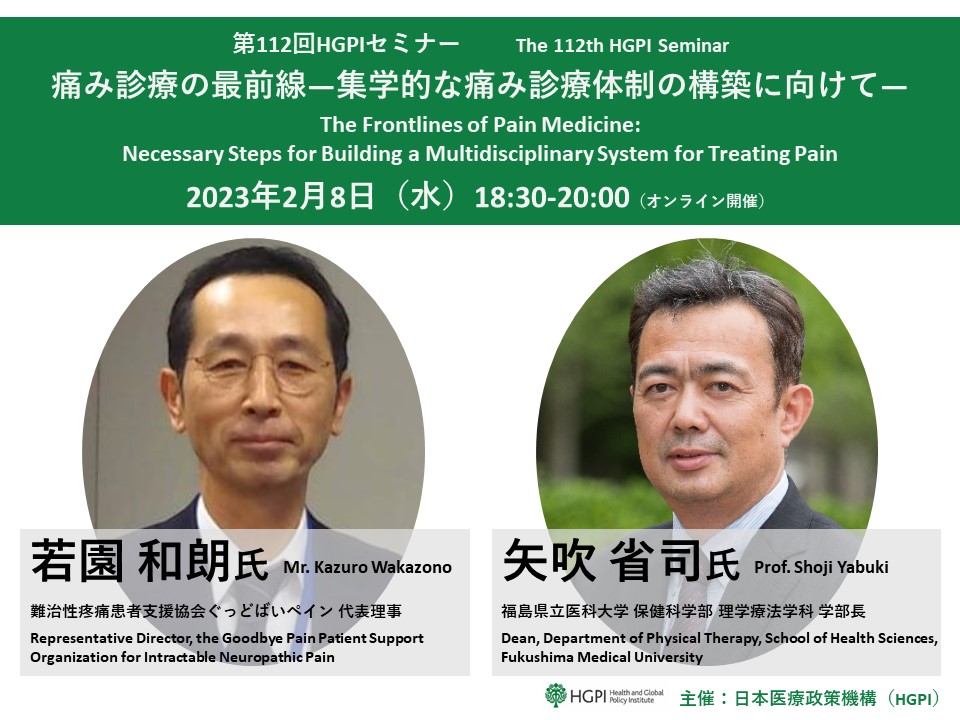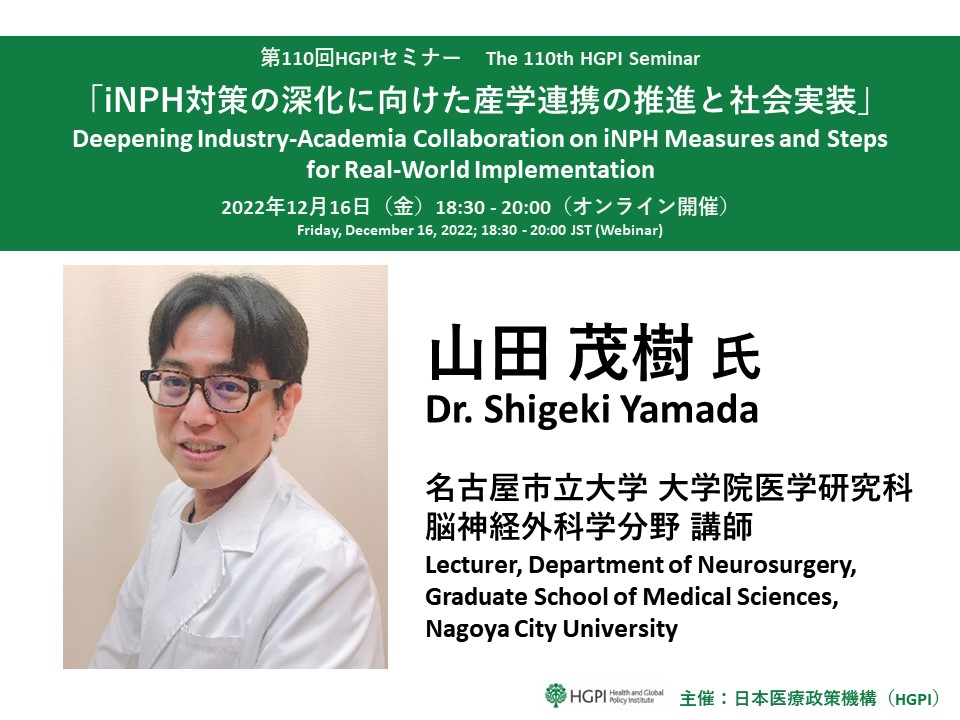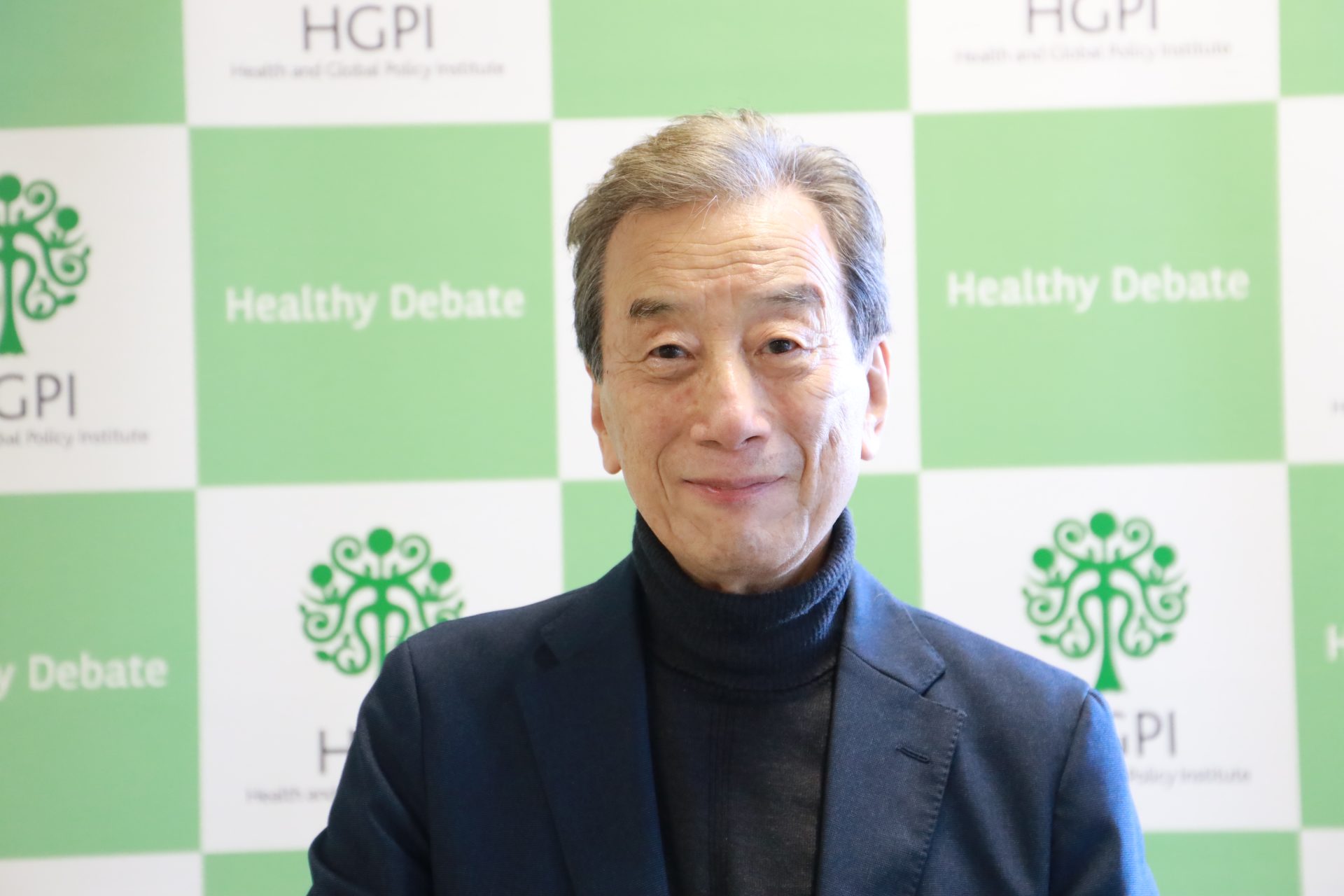[Event Report] The 111th HGPI Seminar – Critical Thinking – How Outliers are Changing Japan (January 19, 2023)
date : 5/8/2023
Tags: HGPI Seminar
![[Event Report] The 111th HGPI Seminar – Critical Thinking – How Outliers are Changing Japan (January 19, 2023)](https://hgpi.org/en/wp-content/uploads/sites/2/5c2cd80a1303fe80662a68259f3573d1-2-1.png)
The 111th HGPI Seminar was this series’ first installment in 2023 and was held using a conversational format that featured HGPI Chairman Dr. Kiyoshi Kurokawa and HGPI CEO and Board Member Mr. Ryoji Noritake. While touching upon the content of Critical Thinking, which stresses the importance of being inquisitive, thinking for oneself, and not taking every situation at face value, Dr. Kurokawa and Mr. Noritake spoke about HGPI’s history and its future prospects
Key points of the discussion
- Dr. Kurokawa’s thinking behind Critical Thinking and why he wrote it
- Dr. Kurokawa’s globe-spanning career and experiences in the U.S.
- The many reforms Dr. Kurokawa has attempted to make in the past
- Dr. Kurokawa’s thoughts on transparency and accountability
- The importance of liberal arts education, asking “Why,” and warning signals for education in Japan
- Expectations for HGPI and the future
■ Dr. Kurokawa’s thinking and the reason he wrote Critical Thinking – How Outliers are Changing Japan (Mainichi Shimbun Publishing Inc.)
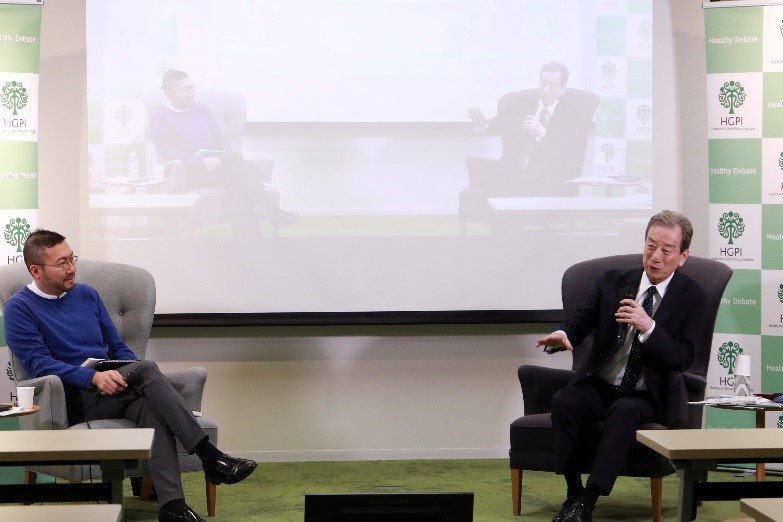 Mr. Noritake: Given that the subtitle of your book is “How Outliers are Changing Japan,” I would like to know your thoughts about Japan and the sense of impending crisis you felt when you wrote your book.
Mr. Noritake: Given that the subtitle of your book is “How Outliers are Changing Japan,” I would like to know your thoughts about Japan and the sense of impending crisis you felt when you wrote your book.
Dr. Kurokawa: The reason that the title of my book emphasizes “outliers” is because the people that are considered to be normal for the rest of the world are viewed as special in Japan. I believe the root cause of this is the low mobility of human resources in Japan. Because the lack of mobility causes people to gradually lose their ability to express objections or their own opinions for the sake of self-preservation, the larger a company is, the stronger this tendency seems to become. To get ahead in such environments, people have to learn to read the room and form assumptions. I have always been of the opinion that when someone belongs to an organization like a company or a university, they should feel no hesitation to move to a better place if one is available.
■ Dr. Kurokawa on his global career and experiences in the U.S.
Mr. Noritake: Taking a look back on your global career, I would like to ask you about the three things Professor Howard Rasmussen taught you at the University of Pennsylvania in 1969, right around the time of the Apollo 11 moon landing.
Dr. Kurokawa: Professor Rasmussen, who served as Chair of the Department of Biochemistry at the University of Pennsylvania School of Medicine, taught me three things. First, he said, “Postdoctoral fellows are independent researchers and you should express yourself and be a professional.” Second, he told me, “Spend two years proving yourself as an independent researcher. Remember that your research theme is not something that is handed to you; you can research what you want to as long as you do not deviate too much from the theme of the group.” Third was, “When there is something you do not understand in English, tell the other person, ‘I don’t understand’ immediately.” Because I had intended to research whatever theme I was assigned by the professor, this was a shock that made me think, “I want to do something that surprises him.” It is safe to say making that decision was a major turning point.
I later relocated to the University of California, Los Angeles (UCLA), which was during a period of unease in the U.S. following the assassination of President John F. Kennedy and the attempted assassination of Robert Kennedy. There was a particular sense of tension in the air. While the country was overwhelmed with anxiety, libraries were still open 24 hours a day, and I could feel that the momentum supporting science would not stop for a state of society that would be temporary. Also, regarding the cost of living in the U.S. at the time, annual salaries were $2,000 to $3,000. It was normal to live off $250 per month in the U.S., and that was enough for a decent apartment and a prosperous lifestyle. To compare conditions in Japan at the time, in 1968, my monthly salary as a national public servant was $70. That was after I earned a Doctor of Medicine degree for a thesis on hemodialysis for patients with chronic renal failure in 1967, built experience at Toranomon Hospital Kajigaya for one year, and returned to the First Division of Internal Medicine at the University of Tokyo to serve as an assistant at the age of 32.
Back in Japan, the University of Tokyo had promised me a post as assistant if I returned within three years, and I had originally planned to do so. However, I had realized how interesting it was at an American university, where the value of one’s work is decided by its content, not by the organization to which you are affiliated or your position. At this turning point in my life, I decided to continue my comfortable lifestyle in the U.S. I thought about obtaining a medical license in California. The test was famous for its difficulty, even in the U.S., but it covered themes that were close to clinical practice. Even during that period, there was nothing preventing people from moving laterally among universities like in Japan, and Professor Rasmussen provided me with a letter of recommendation to Professor Charles Kleeman at UCLA. After the state examination, the U.S. also had a test to certify specialists in internal medicine. The timing just so happened to line up with the introduction of a system to certify specialists in nephrology. In the U.S., you are not considered an employee when conducting research under someone else’s grant, so your taxes are considered unpaid. I obtained my medical license and gradually built up financial stability over the course of seeing patients.
However, it was a harsh working environment – my position was not permanent and there was no retirement package. Nevertheless, the longer I stayed, I was able to gradually rent bigger apartments, and I eventually was able to upgrade to a house with a pool. I was satisfied to be able to live such a lifestyle on a salary from a university.
While there were a number of memorable events during that period – the Apollo touchdown, the birth of my second child –it was also the period of my life that taught me the most about survival.
■ The many reforms Dr. Kurokawa has attempted to make in the past
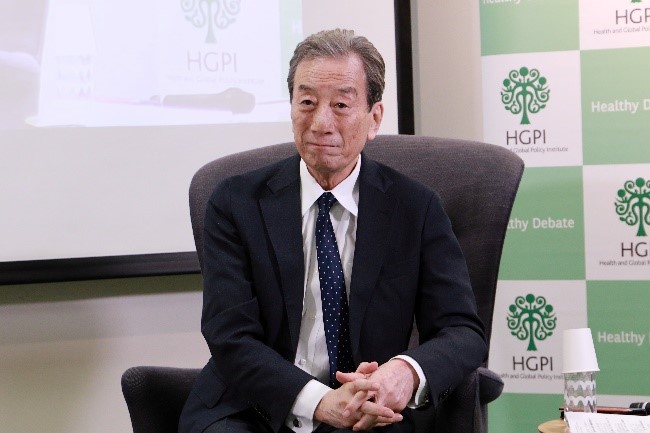 Mr. Noritake: I would like to ask about the experiences that formed the basis for reforms of the concepts of specialist physicians and medical schools in Japan. Two lingering policy issues facing Japan include establishing certification systems for specialist physicians and fostering family doctors. What kinds of reforms were made at Tokai University?
Mr. Noritake: I would like to ask about the experiences that formed the basis for reforms of the concepts of specialist physicians and medical schools in Japan. Two lingering policy issues facing Japan include establishing certification systems for specialist physicians and fostering family doctors. What kinds of reforms were made at Tokai University?
Dr. Kurokawa: It was a period for reform for medical schools in the U.S., as well. It was also around the time that Apple was founded. I returned to Japan after my mentor Professor Etsuro Ogata invited me to join the First Division of Internal Medicine at the University of Tokyo as a professor. There, I worked to reform the graduate school, but did not make much progress. While I could have earned a full retirement allowance by staying at the University of Tokyo until retirement age, I could feel that Tokai University, which invited me to become Dean of the School of Medicine, was on the cusp of a transformation. My proposals eventually came to fruition at Tokai University, and we were able to expand. Their system in which medical students study abroad at universities and hospitals overseas was later adopted by other universities. At this point in my life, I look back and am happy with my decision.
Mr. Noritake: Japan enacted the Act on Organ Transplantation in 1997 and you were appointed chairman of the Organ Transplant Expert Committee. Please tell us about the 2003 Ministry of Health, Labour and Welfare Council on Organ Transplantation From Brain-Dead Donors.
Dr. Kurokawa: Because kidneys were easy to provide, they were already being transplanted, but when it came to the brain, discussions on how to determine brain death had become drawn-out. I accepted the role of chair of that council on the condition that it be made fully transparent to the public. I advocated for letting the media see the entire process of multi-stakeholder discussions with participants spanning physicians conducting the transplants to civil society representatives, and for showing those discussions to the public. Participants were chosen randomly and we gathered their opinions in full view of the press.
Mr. Noritake: In 2011, the Fukushima Nuclear Accident Independent Investigation Commission (NAIIC) was established in the Diet for the first time in the history of Japan’s constitutional government. Discussions at the NAICC were open to the public over YouTube with simultaneous interpretation. You took on a role that placed you in the spotlight for various influential parties.
Dr. Kurokawa: Despite the fact that it was a major incident that shook the nation, an independent investigation committee was not formed at the time of the accident. While it drew a great amount of attention due to continuous media coverage since it occurred, I felt it was bad that official news and announcements from the Government and TEPCO did not fully disclosing what was actually occurring in Fukushima, and that there were gaps among analytical reports from sources like overseas major media outlets and the Government’s own reports. Because this was an event that could cause the world to lose trust in Japan, I thought that instead of just presenting information, it would be necessary for engineers to share how Japan analyzed the situation and clarify why it occurred. At long last, nine months after the accident, I was summoned to the Diet Members’ Office Building on a non-partisan basis and appointed to Japan’s task force, but I was also afraid to present any information that would be detrimental for Japan. Even so, in my capacity as chair, I believed being transparent and open was essential to restoring trust in Japan, so I made sure the hearings with key figures and other discussions held at the twenty NAICC meetings were fully open, such as by having them broadcast live over the internet.
■ Dr. Kurokawa’s thoughts on transparency and accountability
Dr. Kurokawa: When “accountability” is translated from English into Japanese, it is often translated as “obligation to explain,” but this is a classic case of something being lost in translation. The original meaning of accountability is to “fulfill one’s assigned duties and responsibilities.” In Japan’s hierarchical society, people sometimes include the name of the organization to which they are affiliated when they introduce themselves, but overseas, they usually share their profession instead. This is one way we can see how the concept of accountability is misinterpreted in Japan.
Mr. Noritake: While the American way of doing things is not always correct, organizations like the U.S. Navy list “accountability” and “responsibility” in separate sections of their organizational charts, and we certainly see charts like that often.
■ The importance of liberal arts education, asking “Why,” and warning signals for education in Japan
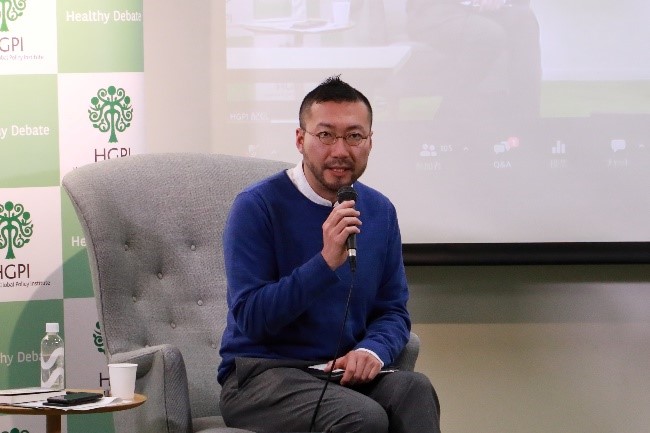 Mr. Noritake: While engineering is important, how would you define liberal arts in its original sense?
Mr. Noritake: While engineering is important, how would you define liberal arts in its original sense?
Dr. Kurokawa: University admissions in the U.S. are not determined by entrance exams that serve as single-bout showdowns of academic ability like in Japan. In Japan, education targets university entrance exams and places its sole emphasis on memorization. This skill, which is required to enter a highly-selective university, is only useful later in life when appearing on a quiz show. Furthermore, schools in the U.S. are not separated into separate tracks for arts and sciences. We should reexamine the true purpose of higher education. For example, the Princeton University reading selection list includes classics like Leviathan by Thomas Hobbes, The Nicomachean Ethics by Aristotle, and The Communist Manifesto by Karl Marx and Friedrich Engels. Japan experienced success through the economic growth that occurred following World War II, when action was taken immediately after the U.S. occupation of Japan. We have been sustaining ourselves on that success ever since, and I think this is something we must address. Rather than their capacity for memorization, people are now being tested on their real ability to think. Instead of simply building knowledge, true higher education in the modern age should foster actual thinking ability.
Mr. Noritake: I have heard stories from you about times you stayed up all night thinking, without sleeping a wink.
Dr. Kurokawa: There are times when I reflect upon an issue until morning, repeatedly asking myself, “Why?” At its essence, liberal arts aims to cultivate the ability to identify the right problem at times we must find solutions to problems without clear answers, or when we do not even know what the problem is. Right now, I am concerned about the situation in Ukraine. How do we perceive the risks of having nuclear power plants, and for there to be attacks on them? Turning our attention from the situations overseas to Japan, who is protecting our nuclear power plants today? I would like for everyone to think back to when the September 11 attacks occurred in the U.S. and recall that Japan received two warnings during that same period. I would like for everyone to find their own answers to the question, “Why?” for every issue.
Mr. Noritake: Speaking with you is an inspiring experience that always leaves me with many fundamental questions. It may be possible that the secret to your youthfulness is that you are thinking all the time, and that is what attracts the young people who always surround you.
■ Expectations for HGPI and the future
Mr. Noritake: HGPI has maintained clean and lean operations as an independent and neutral think tank, and I would like to hear your expectations for HGPI and thoughts for the future.
Dr. Kurokawa: Japan’s GDP has been flat for the past three decades, since the end of the “Japan as Number One” era. Not only has our economy been stagnant, Japan is also the only country in the world where the number of papers published has been flat. The situation has been the opposite in China, which has displaced the U.S. to become top publisher worldwide. In the race to build scientific research capacity, Japan is the only country that has been left behind. This fact is not being made widely known and I feel that the press has been reluctant toward politics. I would like to see the media serve as a watchdog toward authority. I want to see Japan function better as a democracy. HGPI has existed as a neutral think tank that has been ranked third in health policy among 65 countries and third in global health among 35 countries, and it operates successfully without any Government support. While holding unreserved opinions and remaining transparent to the greatest extent possible, I implore young people and women to take up active roles. I want young people to go overseas and see Japan from the outside, because having such experiences will foster the desire to improve Japan. The future rests on your shoulders.
[Event Overview]
- Speakers:
– Kiyoshi Kurokawa (Chairman, HGPI)
– Ryoji Noritake (CEO and Board Member, HGPI)
- Dates & time: Thursday, January 19, 2023; 19:00 – 20:30 JST
- Format: Hybrid format (Zoom webinar and in-person lecture at Global Business Hub Tokyo)
- Venue: North or Central Field, Global Business Hub Tokyo
(Global Business Hub Tokyo Grand Cube 3F, Otemachi Financial City, 1-9-2 Otemachi, Chiyoda-ku, Tokyo 100-0004) - Language: Japanese
- Capacity:
In-person: 50 people
Online: 500 people
■ Speakers Profile:
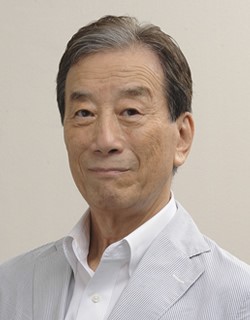 Kiyoshi Kurokawa (Chairman, Health and Global Policy Institute)
Kiyoshi Kurokawa (Chairman, Health and Global Policy Institute)
Dr. Kiyoshi Kurokawa is a graduate of the University of Tokyo Faculty of Medicine. From 1969 to 1984, he lived in the United States where he served as Professor of Internal Medicine at the University of California, Los Angeles (UCLA) School of Medicine. His other positions have included Professor of Internal Medicine, University of Tokyo; Dean, School of Medicine, Tokai University; President, Science Council of Japan (2003-2006); Member, Council for Science and Technology Policy, Cabinet Office (2003-2006); Special Advisor, Cabinet Office (2006-2008); and Commissioner, World Health Organization (WHO) (2005-2009). He also served as Chairman of the National Diet of Japan’s Fukushima Nuclear Accident Independent Investigation Commission (December 2011-July 2012), Chair and Representative Director of the Global Health Innovative Technology Fund (GHIT Fund) (January 2013-June 2018), and as Special Advisor on Health and Medical Strategy at the Cabinet Secretariat Headquarters for Healthcare and Medical Strategy Promotion (2013-2019).
Dr. Kurokawa’s current positions include Vice Chair and Committee Member of the World Dementia Council (WDC) and Chairman of the Investigative Committee on AI Simulation for Coronavirus Disease 2019 Countermeasures. He has been named professor emeritus at the National Graduate Institute for Policy Studies (GRIPS) and the University of Tokyo and as a Distinguished Professor of Tokai University.
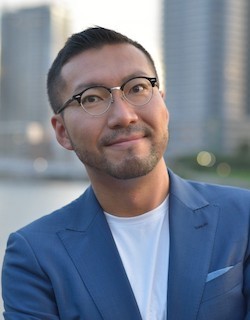 Ryoji Noritake (CEO, Board Member, Health and Global Policy Institute)
Ryoji Noritake (CEO, Board Member, Health and Global Policy Institute)
Mr. Ryoji Noritake is the CEO, Board Member of Health and Global Policy Institute (HGPI), a Tokyo-based independent and non-profit health policy think tank established in 2004. He is a graduate of Keio University’s Faculty of Policy Management, holds a MSc in Medical Anthropology from the University of Amsterdam, the Netherlands. He served as a Visiting Scholar at the National Graduate Institute for Policy Studies (2016-2020) and a member of Tokyo Metropolitan Government’s Policy Discussion Roundtable for Super Ageing Society (2018). He is currently serving as a member of Salzburg Global Seminar’s Advisory Council and various health related committees in Japan and the world.
Top Research & Recommendations Posts
- [Policy Recommendations] The Path to a Sustainable Healthcare System: Three Key Objectives for Public Deliberation (January 22, 2026)
- [Research Report] The 2025 Public Opinion Survey on Healthcare in Japan (March 17, 2025)
- [Research Report] Perceptions, Knowledge, Actions and Perspectives of Healthcare Organizations in Japan in Relation to Climate Change and Health: A Cross-Sectional Study (November 13, 2025)
- [Policy Recommendations] Reshaping Japan’s Immunization Policy for Life Course Coverage and Vaccine Equity: Challenges and Prospects for an Era of Prevention and Health Promotion (April 25, 2025)
- [Research Report] The 2023 Public Opinion Survey on Satisfaction in Healthcare in Japan and Healthcare Applications of Generative AI (January 11, 2024)
- [Research Report] AMR Policy Update #4: Cancer Care and AMR (Part 1)
- [Public Comment Submission] “Assessment Report on Climate Change Impacts in Japan (Draft Overview)” (December 24, 2025)
- [Policy Recommendations] Developing a National Health and Climate Strategy for Japan (June 26, 2024)
- [Research Report] The Public Opinion Survey on Child-Rearing in Modern Japan (Final Report) (March 4, 2022)
- [Research Report] Survey of Japanese Physicians Regarding Climate Change and Health (December 3, 2023)
Featured Posts
-
2026-01-09
[Registration Open] (Hybrid Format) Dementia Project FY2025 Initiative Concluding Symposium “The Future of Dementia Policy Surrounding Families and Others Who Care for People with Dementia” (March 9, 2026)
![[Registration Open] (Hybrid Format) Dementia Project FY2025 Initiative Concluding Symposium “The Future of Dementia Policy Surrounding Families and Others Who Care for People with Dementia” (March 9, 2026)](https://hgpi.org/en/wp-content/uploads/sites/2/dementia-20260309-top.png)
-
2026-02-05
[Registration Open] (Webinar) The 141st HGPI Seminar “Current Status and Future Prospects of Korea’s Obesity Policy: Voices of People with Lived Experience in Policy Promotion” (March 3, 2026)
![[Registration Open] (Webinar) The 141st HGPI Seminar “Current Status and Future Prospects of Korea’s Obesity Policy: Voices of People with Lived Experience in Policy Promotion” (March 3, 2026)](https://hgpi.org/en/wp-content/uploads/sites/2/hs141-top-1.png)
-
2026-02-06
[Research Report] AMR Policy Update #5: Cancer Care and AMR (Part 2)
![[Research Report] AMR Policy Update #5: Cancer Care and AMR (Part 2)](https://hgpi.org/en/wp-content/uploads/sites/2/HGPI_20260204_AMR-Policy-Update-5.png)




